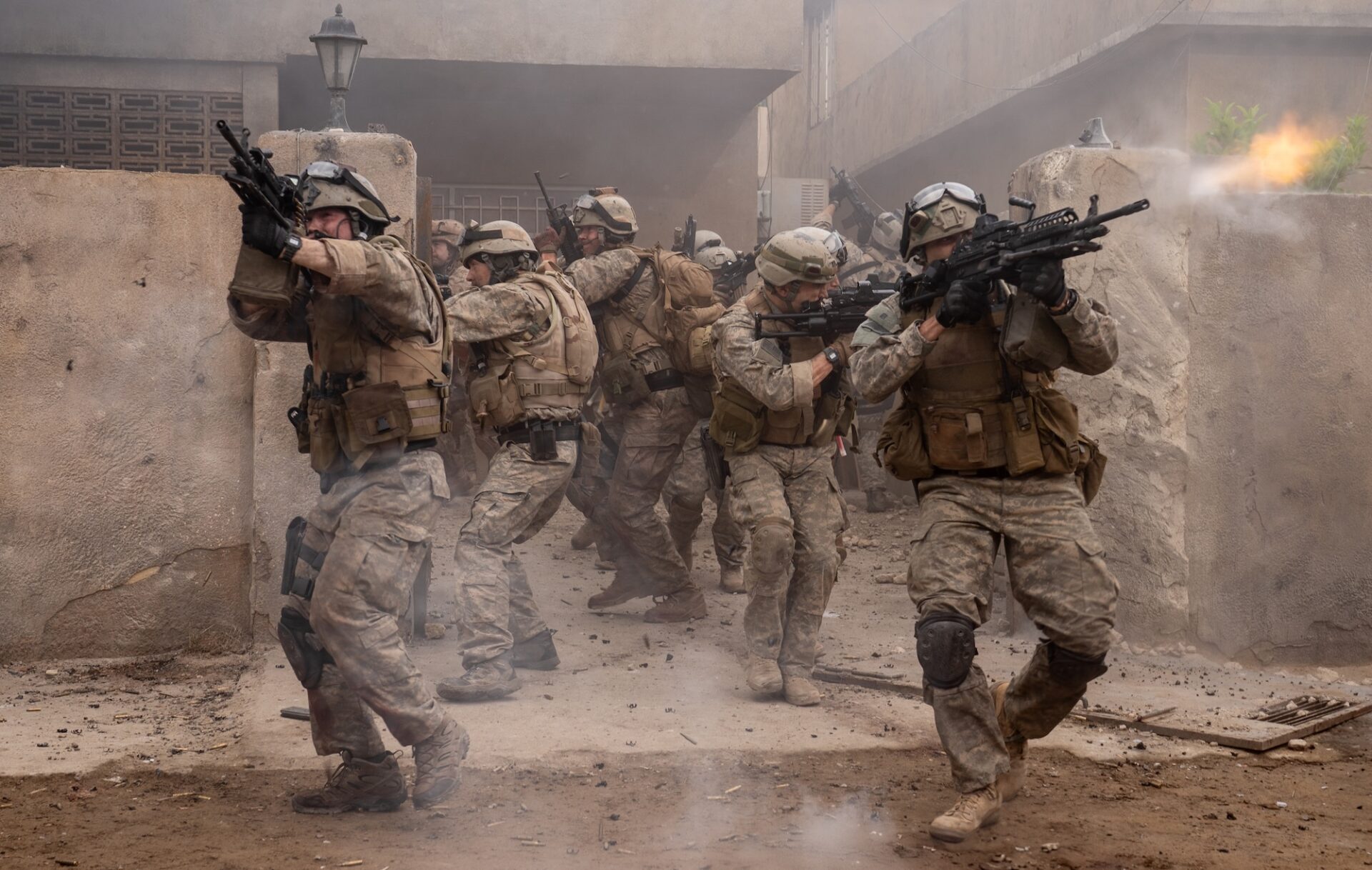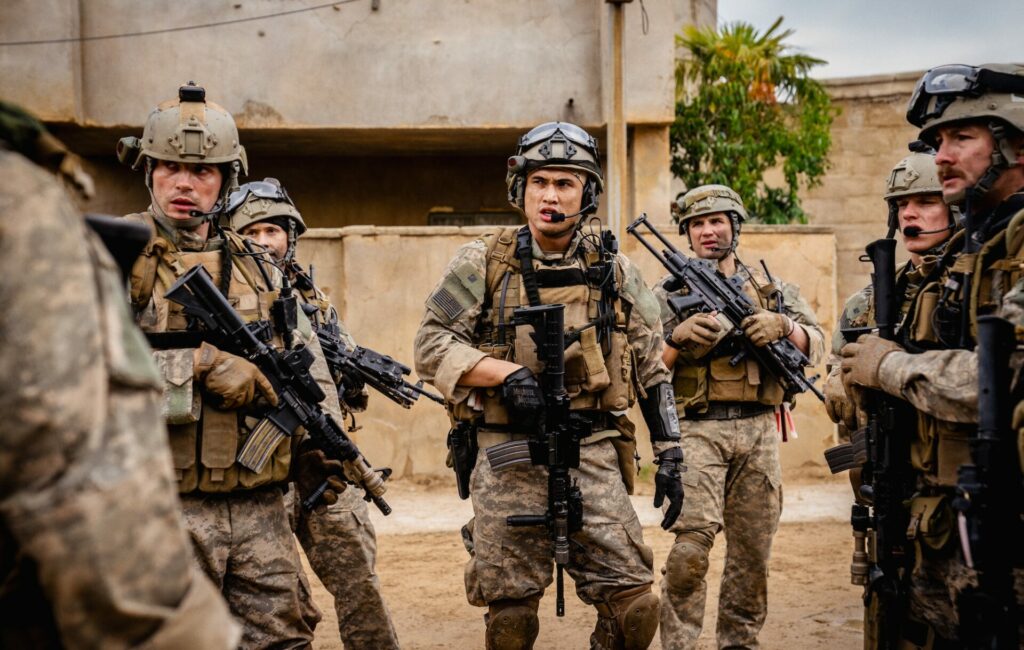‘Warfare’ review: a shockingly visceral and unique take on the war film
Playing out in real time, Iraq War veteran Ray Mendoza and Alex Garland’s new film shows no heroism or victory in war – just the horror. It’s a superb if hugely uncomfortable watch

The first scene of Alex Garland’s new film Warfare is a red herring of the cruellest kind. In it, a group of American Navy SEALs gather around a laptop in 2006 Iraq, dancing and whooping with delight at the legendary, sexually charged video for Eric Prydz’s dance anthem of the time, ‘Call On Me’. Savour the laughs and jubilation of those few moments when you sit down, because what follows for the next 90 minutes is one of the most visceral, tense films ever made.
Warfare plays out in real time, over a 95-minute period in the middle of the Iraq War. The SEALs are holed up in a house in the city of Ramadi, 100 miles west of Baghdad. Among them that day was Ray Mendoza, the veteran who was director Garland’s military advisor on 2024’s Civil War, and returns here as co-director and co-writer.
He, along with direct input and recollections from his comrades on the mission, recounted every moment of the time period to Garland, who acts here more as a conduit than a director. “This film contains only their memories,” a note at the film’s outset states, with Garland and his superb set of actors – Kit Connor, Will Poulter, Michael Gandolfini and more – sticking to this brief rigidly.
War films as a genre in Hollywood have traditionally relied on the humanisation of the soldiers, jingoistic rhetoric around the overall purpose and honour of the war they’re fighting, and usually a heroic victory to wrap it up, as their narrative devices. Warfare sidesteps this entirely – there’s no heroism or victory here, only true horror.
Using real-time as its device and only first-person accounts of the incident, any context about the state of the war at this time or the importance of this particular morning is completely stripped away. Nothing is given a political slant, and the soldiers show themselves to be brave but ordinary and – at points – flawed humans. At multiple points, backup calls to help wounded members of the group are refused by higher-ups, showing the cold and ruthless nature of the situation, while soldiers trip over their injured comrades’ wounds in brutal but honest mistakes.
A gripping and truly uncomfortable tension sits throughout Warfare. The camera lingers uncomfortably long when Cosmo Jarvis’ character Elliott – who was on set observing during filming – is sweating and shaking while looking through the sights of his gun, following potential suspects in and out of buildings. It’s also there when an explosion leaves limbs discarded on the road and its soldiers mentally and physically beaten.

For one brilliant but excruciating 20-minute stretch, every piece of dialogue – usually heavy military jargon to give and receive orders between teams over walkie talkie – is soundtracked by the blood-curdling screams of the injured Sam (Joseph Quinn), with truly extraordinary sound design giving both the loud bangs and quiet internal horror incredible heft. It’s a full body experience that gets you closer to the feelings and terrors of these moments than any film has done before it.
The real staying power of Warfare is in its ending. With the film staying well clear of traditional narratives of triumphant victory, you realise as the SEALs head off to their next mission that the horrors of those 90 minutes will be – and were – repeated over and over for years on end in Iraq and beyond. In handing over the narrative reins to those who were there and successfully getting out of their way, Garland has made something that achieves what no other war film manages. It provides a potent reminder that war rarely contains endings at all, let alone happy ones.
